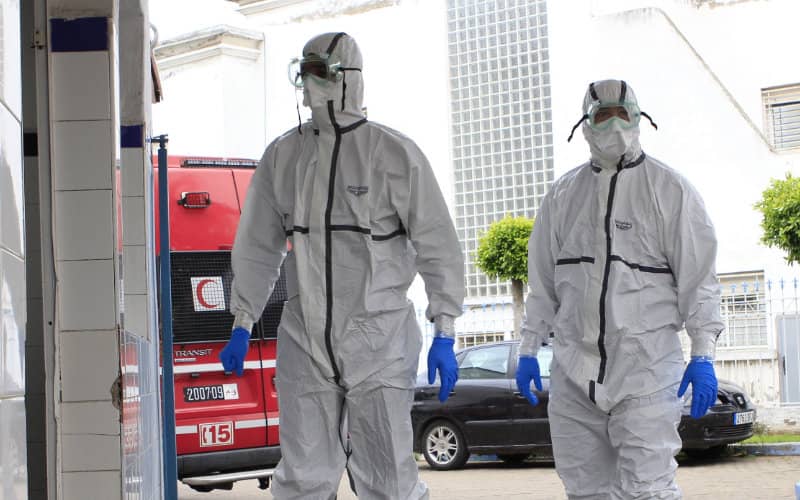Morocco Braces for Second COVID-19 Wave as Cases Surge and Hospital Capacity Strained

The second wave of Covid-19 that is looming, not to mention the seasonal flu that is on the horizon, is causing a lot of concern in the kingdom. While the capacity for intensive care and resuscitation has been doubled, the nursing staff, on the other hand, is lacking, while at the same time, new cases of contamination continue to be reported.
The second wave of the coronavirus pandemic risks undermining the government’s many efforts. If the kingdom was relatively spared during the first wave, the figures have continued to rise since the start of the school year, reaching record levels of contamination with more than 5,000 new cases per day, even if the mortality rate remains below 1.7%, reports Le Monde. The Casablanca-Settat region alone accounts for 18% of the more than 300,000 Covid-19 cases recorded. This, despite the containment measures put in place in September to curb the epidemic.
At the Ibn Rochd hospital in Casablanca, particularly in the intensive care unit, the situation is untenable and the doctors are overwhelmed. "Those who survive are transferred to the regional hospitals, where Covid-19 patients in less serious condition are admitted, until they get better and go home. The others do not survive," says Lahoucine Barrou, the head of the department. Further on, regrets the resuscitator, "we are in the middle of the second wave, we are preparing for the worst, he confides, adding that "for now, we are managing to have room in intensive care, but tomorrow we will be overwhelmed."
Still at the Ibn Rochd hospital, which is attached to the university hospital center (CHU) of Casablanca, despite the 65 beds in intensive care, four intensive care units with 70 additional beds have been created and equipped to accommodate coronavirus patients since the health crisis. "We have moved an entire surgery department to create an intensive care unit. We only take severe cases, because we have the machines that allow us to use different oxygen therapy techniques," details the doctor, noting that "it’s not the machines that are the problem. Equipment, you can buy it. Humans, you can’t buy them."
In reality, faced with the shortage of nursing staff, the CHU has recruited several nursing school graduates to lend a hand to the resuscitators. But the staff remains insufficient on a national scale. However, "With 12,000 doctors in the public sector for 36.5 million inhabitants, the entire system is under strain," notes the same source. "It’s becoming hard. Fatigue is becoming more and more felt," says Kamal Marhoum El Filali, head of the infectious disease department. While on the one hand, the CHU doctors acknowledge that the mistakes made during the first wave have allowed them to better understand the disease in order to better treat it, they denounce on the other hand the "irresponsible" behavior of the population and a "widespread relaxation" in the face of the seriousness of the situation. "The patients who arrive here are already in a serious condition. Either because they did not believe in Covid-19, or because they preferred to self-medicate," regrets Mr. Barrou.
In other cases, he notes, "some patients have even had resuscitation rooms installed at home, equipped with oxygen extractors, to avoid going to the hospital. It’s very dangerous. Patients with respiratory failure need to be closely monitored. Unfortunately, many die on arrival at the emergency room because it’s already too late."
Related Articles
-

Maersk Abandons Algeciras: Geopolitical Tensions and EU Emissions Rules Reshape Mediterranean Shipping
15 August 2025
-

Moroccan Expat’s Dream Investment Turns Nightmare: 10-Day Demolition Ultimatum Shocks Returning Entrepreneur
15 August 2025
-

Morocco’s New Tax Rules Shake Up Joint Property Ownership: What Co-Owners Need to Know
15 August 2025
-

Morocco Unveils Tax-Free Shopping for Tourists: 2,000 Dirham Threshold Unlocks VAT Refunds
15 August 2025
-

Ourika Valley Scandal: Tourists Charged Extortionate Fees for Public Riverbank Access
15 August 2025